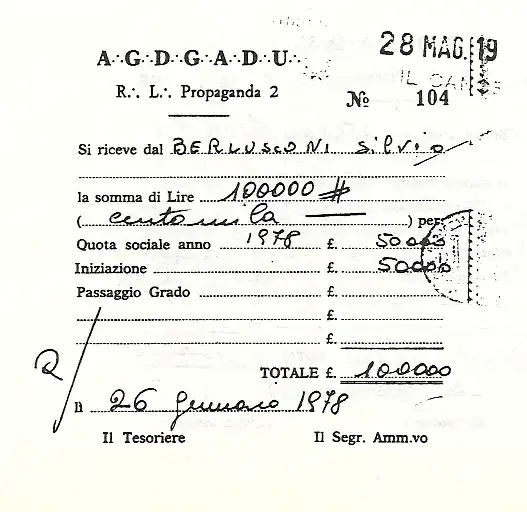We know that such societies exist because many have become exposed.
For historical examples, consider the Freemasons, Illuminati or the Ku Klux Klan. All were, at some point, influential (more or less) secret societies consisting of people with common aims and traditions. The Wikipedia articles on these are actually very well sourced and provide a good summary.
It is well documented that some of these structures have survived until today, and even remain influential, such as the infamous P2 (Propaganda Due) Lodge (source: David Yallop, In God’s Name). The existence of P2 has also been documented in press (where it was referred to as “a state within a state”).
The exposure of P2 in 1981 revealed the membership of many influential politicians – among them Silvio Berlusconi1) – and unearthed plans “for a consolidation of the media, suppression of trade unions, and the rewriting of the Italian Constitution.” (Wikipedia; Tobias Jones, The Dark Heart of Italy).
More recently, the Christian terrorist group Hutaree was exposed in the USA, along with their aim to stage a small-scale coup d'état (source: BBC).
There is also the fear that the deregulation of the mass media market has led to a de facto control of the public opinion by very few people (who would constitute a not-so-secret society). A rigorous examination of the situation in the USA is undertaken in the film Orwell Rolls in His Grave (online video, Wikipedia article).
… so yes, secret societies “that wish to bring about a new world order” did exist, some until very recently, and there is no reason to suspect that they suddenly ceased to exist.
There are of course numerous allegations and conspiracy theories about secret societies that aren’t corroborated by facts. Being conspiracy theories, there isn’t much chance of disproving them conclusively, and nary a chance (other than by sheer coincidence) of them being true.
1) Berlusconi’s membership receipt:

It is also worth noting that in many countries the political elite is a very tightly knit group of people. For instance, in France many of the top politicians went to the same University – Sciences Po – and knew each other even before that, sometimes through family ties. In Germany, most conservative politicians belong to tightly knit fraternities (“Studentenverbindung”). This of course means that without the right connections it is hard to gain footing in politics.
But none of this is secret, let alone constituting secret societies. It is also, as far as I know, entirely uncontroversial. For that reason I can’t be bothered to research references. The remark serves more as an “FYI”.
